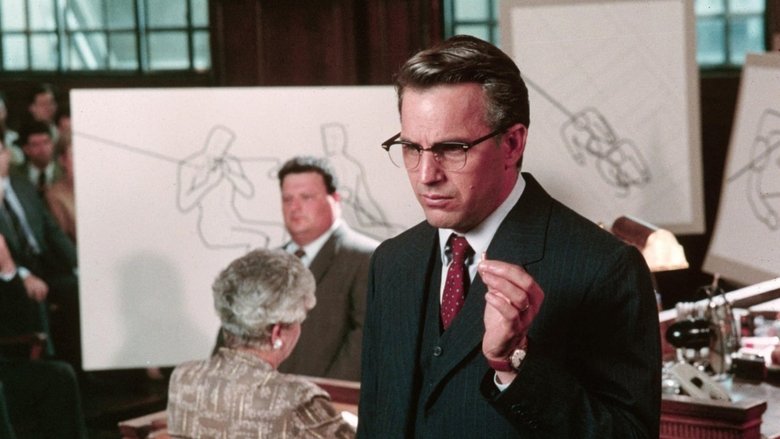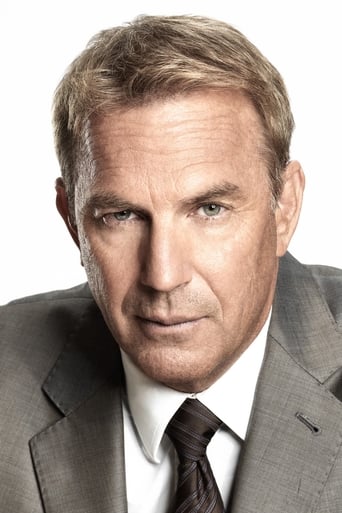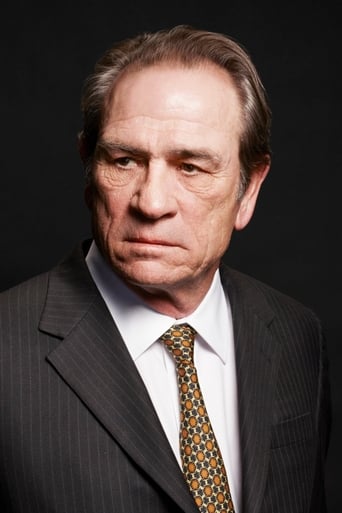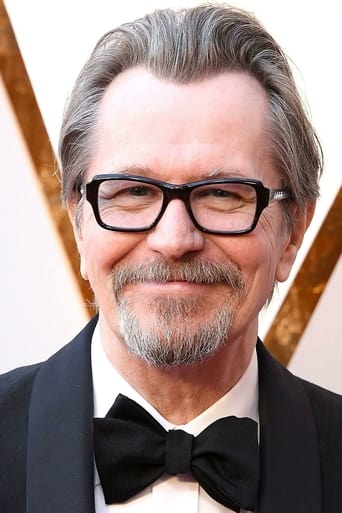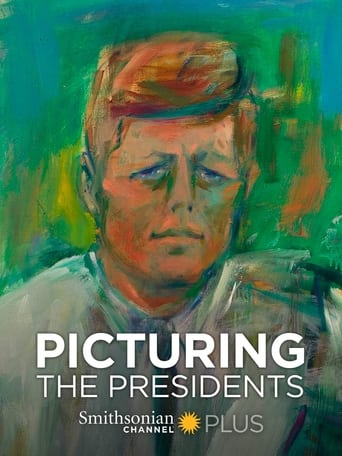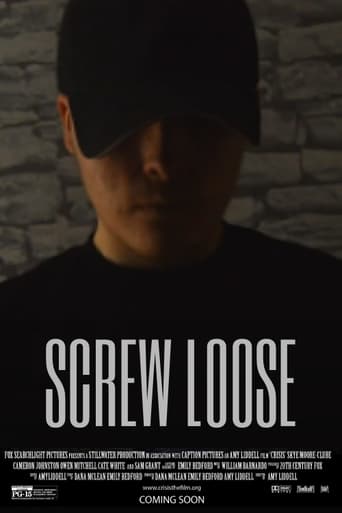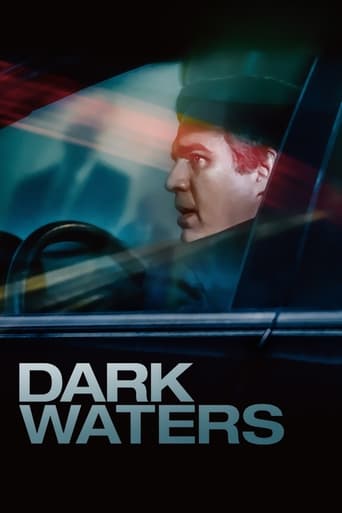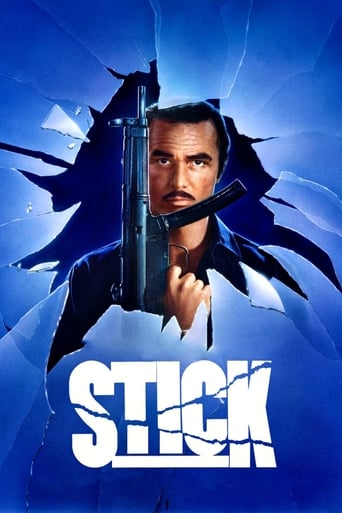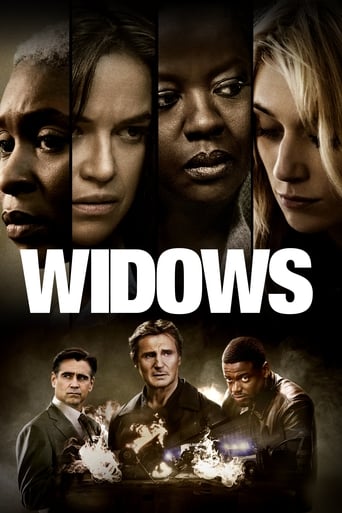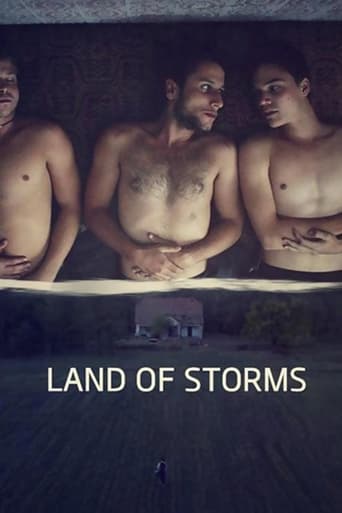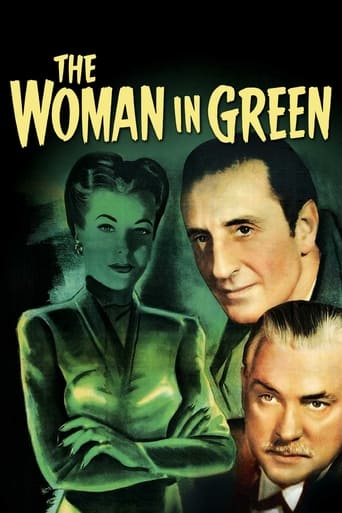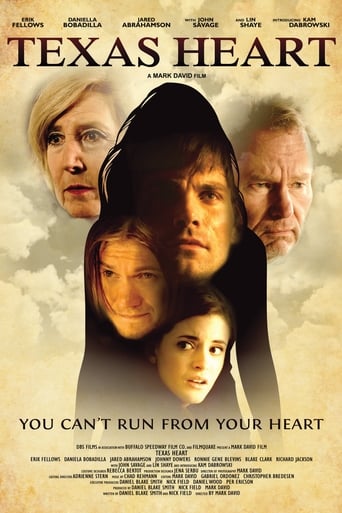JFK (1991)
Follows the investigation into the assassination of President John F. Kennedy led by New Orleans district attorney Jim Garrison.
Watch Trailer
Cast


Similar titles
Reviews
Oliver Stone, the director of film JFK [1991] has done a great job. He has directed a movie, that truly deserves Oscar in direction too which stone didn't won. The Film won two Oscars in Academy Award (1992), one in editing (Joe Hutshing and Pietro Scalia) and one in best cinematography(Robert Richardson). This Is a mind blowing historic thriller film which you will want to watch it again and again after seen it in first time. Some scenes in this movies are so interesting and amazingly filmed that created goosebumps every time i watch it, specially the assassination scene [2:54:32 to 3:07:30] in 3h 21m Director's Cut. The main key points to watch JFK are:1. Cinematography: Robert Richardson is the cinematographer of JFK [1991]. The excellent art of photography and camera-work made this movie watchable again and again.2. Editing: The merging of various shots and soundtracks at the same time is the key point of this film that makes it more interesting after every scene.3. Soundtrack: The assassination scene demo at the beginning started with a goose bumping soundtrack that actually makes feel the conspiracy work. It is a great thing.4. Acting: Costner, Oldman, Pesci, Jones, bacon and Sutherland's's great acting lift up the movie to a great height.If you didn't watch it, PLEASE go... take a shower and watch it. I promise you will never be disappointed if you have interest in a thriller movie. I HIGHLY RECOMMEND this movie. 10/10 (Please watch it in 201m Director's Cut on Blu Ray quality)
Oliver Stone is well known for his political filmmaking. Whatever your opinion of the American government, the assassination of John F Kennedy and the war lobbying, "JFK" is an fine example of great acting by Costner and impeccable screen writing, in a highly engaging movie. It is thrilling enough to keep you watching through the 189 minutes.
The assassination of American President John Kennedy is one of the most talked about events in American history so making a film about such a talked over event was going to be no easy task but Oliver Stone pulled it of perfectly and may just be the best film he's ever given us next to Platoon. This film has an extremely long runtime and there's nothing wrong with that as long as they use it to the films advantage and they do, the first 30 minutes of this film takes the time to explore the effects of the assassination, the reasons why it effected To so many people and sets up the main character and his motivations played perfectly by Kevin Costner. I truly think that this is the greatest performance Kevin Costner has ever given because he perfectly strikes a balance between his obsession with solving the assassination and his commitments to his family, the character is just so well written, you understood why he was so obsessed and was an easy person to get behind. Tommy Lee Jones gives a performance like we've never seen from him before, he was fantastic in this film, he was such a despicable character and was the perfect foil for the plot of this film. A very young Gary Oldman was also great in this film as Lee Harvey Oswald, he leaves a really big impression for the rest of the film to follow and when we start to learn more about Oswalds character, Oldmans performance remains consistent. This film could have been extremely boring because of the amount of information that it has to give out but it never is. The film takes entire sequences to add emotional weight to the assassination and the masterful editing in this film allowed us to take in the information better. I really liked the fact that Stone didn't paint the assassination as just an act of pure evil, we begin to understand why JFK was killed and while you never support them, you understand why the assassins chose to kill him and made the film much more interesting. Another thing I loved about this movie was the sub plot of Garrisons family, it added to Costners character as we begin to see that his obsession with this case is becoming unhealthy, yet through conversations with his children we begin to further understand his motives and was really heartwarming at times. JFK is a masterpiece, it's engaging, never boring and extremely intriguing. While I'm not entirely sure if this film is completely accurate, it's probably somewhat close to the truth. It has fantastic performances, particularly that of Kevin Costner and may just be Stones best film. 100%/A+
Continuing my plan to watch every Kevin Costner movie in order, I come to his second movie of 1991,JFK. Plot In A Paragraph: Jim Garrison, a New Orleans District Attorney, discovers there's more to the JFK assassination than the official story.Does anyone still believe Lee Harvey Oswald was the lone gunman?? Sorry too controversial?? I'll rephrase that...... Do you know anyone who believes Lee Harvey Oswald acted all by himself in killing Kennedy?? I certainly don't. Now on to the movie Itself. Watching this movie, It's impossible to believe the Warren report, because the physical evidence makes its key conclusion impossible: One man with one rifle could not have done it. If one man could not have, then there must have been at least two. Therefore, there was a conspiracy. But we just don't know who!! Maybe it was the CIA, maybe the FBI, it could have been Castro, or the anti-Castro Cubans, the Mafia or the Russians, or all of the above, were involved. We just don't know.What we do know, we know by heart. The grassy knoll, three shots in 2.6 seconds, Lee Harvey Oswald in Russia, the Zapruder film, Jack Ruby, the hobos in dress shoes, the parade route, the Bay of Pigs, the eyewitness testimony, the woman with the umbrella, the palm print, the wrong shadows on the photograph etc.JFK is a masterpiece. It's huge cast is perfect. Gary Oldman, Kevin Bacon, Joe Pesci, Donald Sutherland, John Candy, Walther Matthau, Jack Lemmon and Sissy Spaseck. Special mention must go to Jay O.Sanders and Michael Rooker too, I always like seeing him and screen, and here is no exception. Of course Tommy Lee Jones was nominated for an Oscar for his work here. But truthfully most of the main and supporting cast could have been. None more so than KC, who gives a passionate performance. The writing, the directing, the acting, the editing, the music (by John Williams) the photography, are all brilliant. It's one of those movies where EVERYTHING is on point. I honestly expected the movie to sweep up at the Oscars, I was shocked Silence Of The Lambs won what it did, when it was up against this, and many others. I hadn't seen the movie when it won what it did, and was unimpressed when I did (but that's another story) JFK was nominated for 8 Oscars (winning 2) and I think it should have been more, with KC being robbed of a nomination himself. He was certainly more worthy of winning than Anthony Hopkins in his glorified cameo!! Hardly in the movie, but he won best actor. KC helms a 3 hour epic, and is ignored.I suspect the movie was too controversial to win, as was KC's character, too controversial for a nomination!! Stone received a lot of criticism at the time for having Garrison as the "hero" of the movie. If I was to make a boxset of KC movies, for future generations to get a grasp of KC as an actor, this movie would be in there, along with Dances With Wolves and Field Of Dreams. Despite being viciously attacked in the media, before it was even released. JFK ended the year, the 17th highest grossing movie of 1991 with a $70 million domestic gross. More than Thelma & Louise, the popular comedy Hot Shots, and action flicks Point Break and Last Boy Scout. Another classic, and 10/10 for this reviewer


